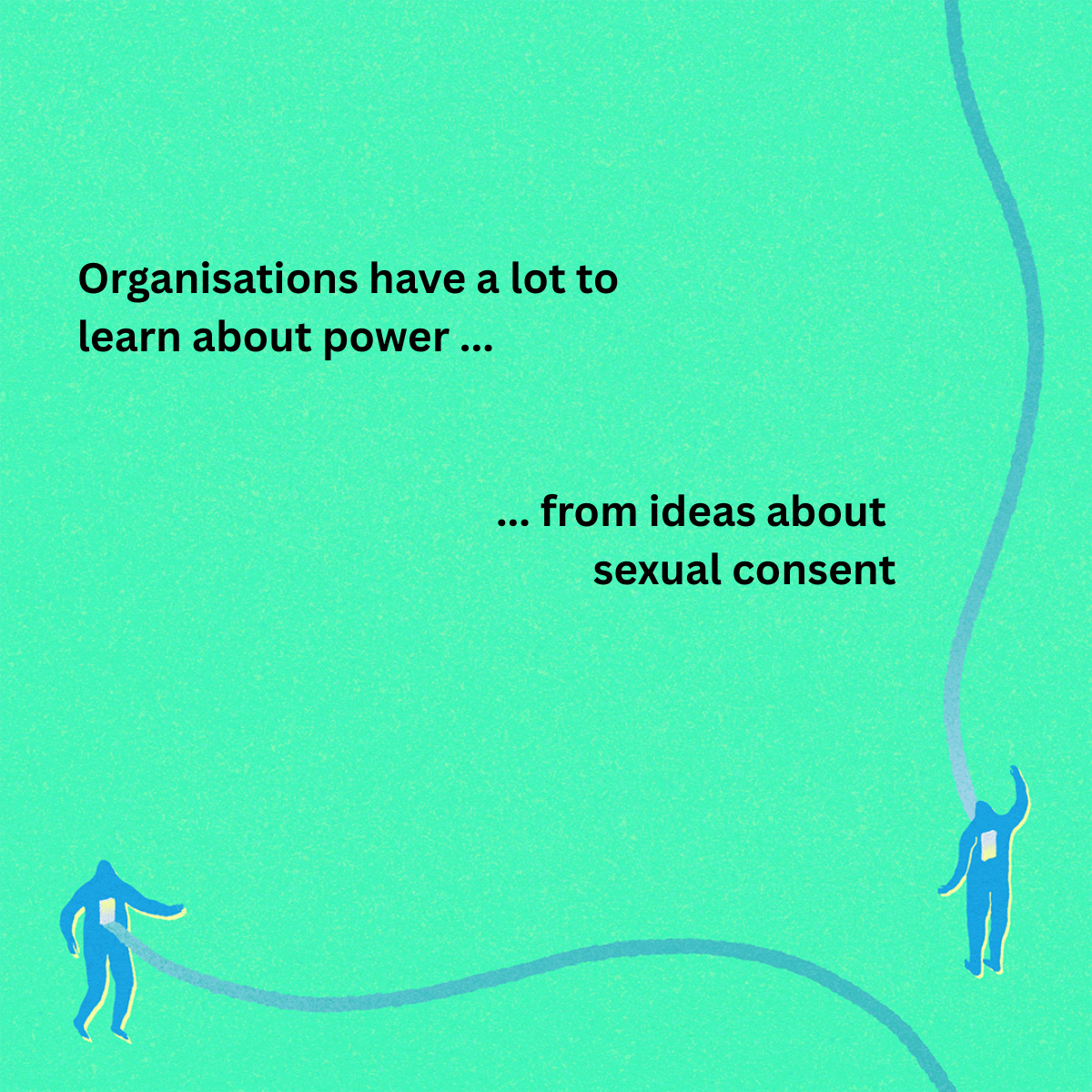Power is a consent issue
Can we have healthy, balanced power in organisations?
The second episode of the Corporate Bodies podcast series launched on 8th May. You can listen here (or wherever you get your podcasts!). Head over to the podcast page for the show notes and transcript.
This article accompanies the episode and provides space for a little more reflection on issues of governance, power, control and limited liability, that we discuss with our guest, Sarah McAdam, Co-Steward at the Transformational Governance Collective.
As Kate has previously set out, limited liability describes the fact that if you own (or hold shares in) a limited company your responsibility for the debts of that company is limited to the value of the money you put in in the first place. This is a very useful device for reducing the risks for owners and investors should things wrong. It means that their personal wealth is not endangered and therefore makes it much more attractive to get involved in whatever the collective activity being undertaken by the company is, whether that’s colonial capitalism or social justice.
As investors or board members these are usually the people with ultimate decision making power in the organisation. Therefore limited liability doesn’t just reduce their risk, it often displaces that risk onto others, namely the staff or service users who are impacted by those decisions, whether they be redundancies, closure, restructuring or some other significant change to the organisation or what it does.
This power imbalance at the heart of limited liability - which we have previously identified as one of the original sins of the modern company - was the entry point to our conversation with Sarah. But the conversation ran much wider and deeper.
Sarah was the first - but by no means the last - of our guests to reference the work undertaken by Annette Dhami at Dark Matter Labs for the #beyondtherules project. Annette and her colleagues identify that governance - the structures and processes by which we make decisions in organisations - is made up of five different elements, all of which need to be kept in balance. These are:
Power ‒ the ability to shape conditions
Autonomy ‒ the freedom to do things in a way that you deem fit
Responsibility ‒ the burden/ability to take action
Accountability ‒ the burden to justify your approach
Risk-holding — bearing consequences of the results
Limited liability means that board members often have a lot of power, autonomy, and responsibility, but often have less accountability and hold less risk than the staff teams or service users who are impacted by their decisions. They hold more of what Annette describes as the ‘enablers’ of power and fewer of the ‘burdens’. For a staff member, or service user, at the receiving end of their decisions this means that those decisions can often feel unjust.
Sarah also describes work she has been doing to codify the characteristics of what she calls ‘healthy power’. She identifies these as:
Visibility - which enables you to understand and question the different types of power that exist within an organisation
Distributed and dynamic - power (and resources) flow to where they are needed, and then move on
Accountable - is able to justify itself to those impacted by it
Consensual - where the person holding the power and the person over, or with, whom power is being exercised is consenting to that power relationship
This idea of consent - drawn from our understanding of sexual consent - is not the last time in this podcast series that one of our interviewees will draw parallels between the relationship between people and organisations, and the intimate relationships we are familiar with between people. This feels like a rich vein of further exploration in our understanding of our relationship to work and to the legal person that is the organisation.
This discussion highlighted the extent to which terms and concepts such as governance and limited liability often obscure the fact that underneath - or within - them are issues of power and control. These are issues that we are often uncomfortable talking about, but which we need to face squarely in our working lives.
If the decisions we are subjected to (or taking) feel unjust because the enablers and burdens of power are out balance, or if we are feeling that power has been taken (or dumped on us) without our consent, and if we are unable to have open conversations about them because to do so is uncomfortable, then its no wonder our workplace dynamics can feel weird!
If power is to flow, be visible, accountable, and consensual, and if power, autonomy, responsibility, accountability and risk-holding are to be kept in balance, then we need to develop a shared language of power. And perhaps we need shared processes or rituals for taking, conferring, holding, and putting down or passing on power.
Perhaps most of all we need to ditch the idea of limited liability and replace it with the idea of liability that is shared or balanced.
If you’ve not already heard to our conversation with Sarah you can listen here (or wherever you get your podcasts), and if you enjoyed it be sure to join us for our next episode where we will be getting all Dr Frankenstein, and exploring how the body in the corporate body is created, with Liam Barrington-Bush from RadHR.
If you have experience of the oddness of limited liability - or any other organisational weirdness - you’d like us to share with us, please drop us a voicenote here. We’d love to hear from you!




